 Courtesy of WOWSA, Huntington Beach, California.
Courtesy of WOWSA, Huntington Beach, California. Cyrise Sanders (nee Calvin) of the La Jolla Cove Swim Club gave us permission to post her first-hand account of a near disaster she faced in the Pacific Ocean near San Diego, California.
Cyrise is one of the most seasoned open water swimmers in the San Diego area where she has swum in the La Jolla Cove for over 20 years. She swam the Catalina Channel in 1992 and the English Channel in 1994 in 10 hours 50 minutes in 59°F water. She has done countless swims of 2-3 miles by herself in the (generally cold or cool) Pacific Ocean.
This is her first-hand account:
 ...I want you to know that what happened to me was astounding, shocking, and unfathomable. It could happen to anyone. It could happen to you.
...I want you to know that what happened to me was astounding, shocking, and unfathomable. It could happen to anyone. It could happen to you. Loving the ocean doesn't change. I look at the Cove on a calm day and think, "Oh, how peaceful and beautiful. On a day when it’s windy and wild with whitecaps I think, 'FUN!' It’s all good."
January 10, 2009 was a Saturday like many others. I set out for the Cove to swim with my friend, Rick Knepper. What a gorgeous day! Once I get there, I breathe a deep sigh at the majesty before me. It is a calm day. The sun is just slightly up so the sunlight streams over the red-tiled roofs at the Marine Room and the palm trees along La Jolla Shores, but, because of the angle of the sun this time of year, the hills behind La Jolla Shores are still shadowed. No clouds. No fog. Another epic day.
At the Cove there is the usual gathering of 'Saturday – 7:30' swimmers. I hook up with Rick and we get ready - just a bathing suit, goggles and two caps for me. We set out well after the crowd because it takes me soooo long to get in the water! Not unusual. I just get wet an inch at a time. Once it’s up to my waist I’m in and we go. The water feels cold, but no colder than any other January day. I figure 55° or 56° F. It’s about 7:45 am when we start.
As we head to the Tower at the Shores, I feel okay. About ¾ of the way over I notice my feet are starting to hurt and they aren’t doing anything. 'Kick feet, kick,' I tell myself. I kick a little harder, but realize that the pain is not going away. I know myself and in the thousands of swims I’ve done in these waters, my feet don’t usually hurt until after I’ve left the water. We get to within 100 yards of touching down at the Tower and I stop and tell Rick, "I need to turn back now! I’m cold!"
I’ve been cold before, it’s not unusual. He says 'Okay' and mentions that we were slow coming over and that we did a big banana arc. I’m usually the compass and hold a good line – so I like to think. Not this day. We’ve now swum about a mile and been in the cold water about 25 to 30 minutes.
We turn around and head back. I’m pleased with my training lately. I’m consistent. It’s been a normal week. Monday: 3 mile run. Wednesday: Marine Room swim (1½ miles) – I was by myself and felt fabulous. Thursday: weight training. Friday: 5:30 am pool swim with my local masters group (4500 yards). So I’m a little confused, frustrated actually, as to why I can’t keep up with Rick today. Also, I start to think, 'Wow, the tide must be really high because it feels like a washing machine from the backwash off the cliffs.' But, it occurs to me that there really isn’t much of a swell, and besides, I love it when it’s bumpy, right? Not today!
Something is different. Something is wrong.
No sooner do I have the epiphany that it’s me and not the ocean that my body shunts! Vasoconstriction, actually. Vasoconstriction is what occurs when our body shuts off blood supply to the extremities to protect the core (heart and internal organs). One’s blood pressure actually goes up as a result of the “extra” blood flowing in a more restricted area. It’s one of the most primitive self-preservation mechanisms in our bodies. It’s not something you think about. It just happens. So, I shunt. There’s no feeling in my arms and legs. Everything’s fuzzy and my brain fades quickly. I feel like I’m losing consciousness. I stop. After a few strokes, Rick notices my absence and stops.
I’ve had a comfy feeling of numbness before. Most of us that swim out here in the cold do. This is different. This is a complete cessation of blood flow and it’s not stopping at my arms and legs. The rest of me is going too. I recall saying later that I felt my blood pressure drop. Yeah, it was dropping in my brain; my internal blood pressure was likely much higher.
I’ve become disoriented. I feel like I am going to sink like a rock.
I am in trouble!
I never understood the stories of people sinking and drowning until just now! I know this is how it happens. I know I'm going down and nothing will be able to pull me up.
Although he is 60, Rick is no slouch. An ex-Navy Seal, he swam the Catalina Channel a few years ago and is currently training for a 36 mile swim. However, he’s had double knee replacements and I know that rescue-pulling me is not an option. I know that if I pass out I am dead weight and am going down. I’m responsible for my own life.
As soon as Rick stops I yell to him, "I’m NOT okay! Stay with me!"
Without hesitation he screams at me, "KEEP SWIMMING!"
So I put my fuzzy head in the water and keep swimming. I can hear and see Rick beside me yelling for help. It gives me comfort. As I keep swimming face down, my brain gets hazier and I feel as though I’m being forced to go to sleep. I’ve fainted once before, over 20 years ago, (on land,) and I know I’m about to pass out. This time, I’m in the middle of the ocean! The blood has shunted from my arms and legs and I can feel my head is next. My panic (and possibly hyperventilation, as I’ll find out later) only seems to hasten the affects. After taking a few strokes I stop to complain to Rick, even though I know there isn’t much he can do. He doesn’t even let me begin to protest and screams, "KEEP SWIMMING!!"
I take a few more strokes, but this isn’t working. Everything is dark when I put my head in the water. I’ve spent entire swims to Scripps Pier and back (3 miles) marveling at all the different shades of green the ocean has to offer. Now the darkness terrifies me. I flop on my back. I just need a few deep breaths of air and sunlight on my face. If I pass out, maybe I can still get some air. I know this is wishful thinking.
"KEEP SWIMMING!"
Rick is relentless. I start swimming backstroke and forcing air in and out just to stay awake. It’s not pretty. Who knows what my arms are doing. I can’t feel them but I’m moving and am able to lift my head a little out of the water. Less cold. Still fuzzy. Most of all, I can breathe. (There is something to be said for having gone through childbirth three times. Not to mention all the swimming and training I’ve done over the years.) I try to get my breathing into a rhythm and keep the haziness that is taking over at bay. I just need to stay conscious.
I’ve got tunnel vision. Tunnel vision is loss of peripheral vision with retention of central vision. In my case it’s caused by blood loss or a drop in blood pressure in the brain. I can only focus on what’s immediately in front of me. I don’t really see Rick, but I hear him and know he’s beside me. He’s yelling for help in between strokes. It’s comforting, but I begin to wonder if anyone has heard him.
We were in the middle when my crisis came. We were about ½ mile from shore in either direction. The middle. It doesn’t matter how many thousands of miles I’ve swum in my life, in these very waters, there is no way I’m going to make that last half mile.
I pray for strength. I think of my family and hold each of my children in my heart and pray that God will do the same with me. Mostly, I just pray for strength. I’m not expecting God to lift me out of the water, but I pray He gives me the strength and the will to keep swimming even though everything in my body is saying, 'STOP, and let go.'
My judgment is impaired. It seems as though I’ve been swimming for 15 minutes since the trouble began. It was probably only half that. I’m still doing backstroke and I figure we must be getting close to the Cove. Maybe I’ll actually make it to shore before the lifeguards get to us. I’m in the washing machine, but decide to roll over and try to gauge where we are. I’m hoping for Razor Reef, which would mean only a few hundred yards to go. I turn over and see the ¼ mile buoy in the distance which means we have well over ¼ mile to go. My heart sinks. I try to ask how much further with a twist on the classic, "Aren’t we there yet?" I’m not sure the words ever come out or if they are only in my mind.
"KEEP SWIMMING!"
Rick doesn't let me stop to complain.
I return to backstroke. It’s working for me. I'm incredibly cold and in pain. More praying. My neck is getting stiff from trying to keep my head out of the water while swimming. (I’ve since learned that the Coast Guard specifically recommends that you NOT swim backstroke as it is the stroke that causes the most heat loss.) In my case though, it works. There is no way I can put my face back in the water. I’m losing blood flow to my head. The cold on my face just makes me want to clench my jaw and eyes shut and sleep. This will lead to a phenomenon called spontaneous inspiration or gasp reflex. It is another primitive response to cold water due to not getting enough air because of shallow breathing. These involuntary breaths will ultimately lead you deep into the drowning episode by aspirating water into your lungs.
I think I’ve been swimming for awhile and can tell we have company. There are a few swimmers with wetsuits, (a novel concept) and I recognize Bruce Beech. I can hear Rick issuing some sort of orders for them to get me to swim more towards the Cove. Like I said, it isn’t pretty. (Who knows, maybe I was headed out to sea or swimming in circles.) The sun is in my eyes, but one of the guys offers me his neoprene cap. "No," I say.
I just have to keep swimming. Bruce, a pleasant and familiar face, gets next to me and offers to give me his wetsuit. If only he knew what was going through my mind. It's ludicrous. I tell him I can’t stop. It would take too long….at least, I think I said that. My flotilla of wetsuiters stays with me. I don’t hear Rick anymore. I figure he’s sprinted to get closer to the Cove to try to get someone to call 911. The lifeguards aren’t due to come on duty until 9:00. City budget. Looking back and doing the math, it was probably between 8:30 and 8:45 at that point. I didn’t have 5 more minutes in me, let alone 30 minutes. I look over, maybe I’ve stopped, I’m not sure, and I see Rick is at the ¼ mile buoy and he’s trying to climb on it and yell for help. He seems really far away. In my delirium I think, 'Why don’t I climb onto the buoy and hold on?', but it seems too far away and I’m not sure I could hold on anyway. I keep swimming.
Eventually, I hear, "They’re coming."
Huge relief! But I still won’t let myself stop swimming. I wait until the last possible moment as the lifeguard Jet Ski pulls up next to me, stops, and I reach for the rescue board that's behind it. I can’t see anything. I don’t even know who's rescuing me. There are handles on the rescue board. I grab on and surprise myself that I can hold something even though I can’t feel my arms, or see. The lifeguard on the back pins me down so I don’t roll off. I’m not going anywhere. I hear the lifeguard say we’re going to the Cove since it’s the closest. It occurs to me that I probably hadn’t swum that far after all. I was in the 56°F water for about one hour.
They plop me down in the Cove. Despite my previous impression that it was a washing machine, there’s no surf. The water is calm. Good. I can’t stand up, but someone grabs me from behind. Somehow they get me going, taking a few steps. I’m wobbly, but I think I am walking on my own. The Cove lifeguard is there to greet us. Thank God he came on duty early. They do the hand off and he guides me up the stairs.
It is someone I know, Jim Birdsell, an old friend of my husband’s. He asks me my name. I comply, but am wondering why he doesn’t recognize me. Then it occurs to me that I must look like crap. It isn’t until later that I realize he was gauging my condition.
He gets me into the warm shower at the lifeguard station. I’m a noodle and slink to the floor. Ahhhh, it feels good! I know I’m in trouble and not out of danger yet. Who knows what my internal core temperature is.
Jim stays with me, talking to me and asking questions. I receive a few visitors. Rick looks in on me. I realize he didn’t get the Jet Ski ride back and still had a ¼ mile swim after they plucked me out. I tell him to please use the gallon jug of hot water I brought to pour over my head, as I won’t need it. (A custom among us winter swimmers, it's just enough to take the edge off.) Bob West, no stranger to crisis in the ocean, comes in to see me. He asks me if his wife Marva should call my husband. I tell him not to bother.
What was I thinking? I don’t know, I guess I didn’t want him to have to shuffle the kids. My perception was way off. Even though I knew I was in trouble – still, part of me thought I’d be all set up after this nice shower. I had no idea how long it would take to recover. In hindsight, I would’ve done a few things differently.
After 5 or 10 minutes in the shower, paramedics arrive. (Again, my perception of time could be way off.) They just look at me for awhile and talk about me as I remain a noodle on the shower floor. Finally I ask someone to take my temperature. Someone produces an ear thermometer, but he assures me that this is not my core temp. I don’t want to leave the warmth of the shower, but just crane my neck and give him an ear. He tells me it is 94° F, but that it is not my core temp and if it were I’d be dead.
I’ve since learned this isn’t necessarily true; you don’t go into cardiac arrest until about 86°F, but you will lose consciousness at 89.6°. Not that I’m encouraging anyone to push it further, but that’s what the medical texts say. I also know that even though I had a few more degrees to go before cardiac arrest, a loss of consciousness due to hypothermia or even due to hyperventilation from the panic that ensued, may well have lead to my demise.
There is a Jacuzzi across the street from the Cove at the La Jolla Athletic Club. I seem to be coming around so they escort me up there to continue the thawing process. Up in the Jacuzzi there are about ten or so swimmers that have heard of or seen some portion of the event unfold. More familiar faces. I can tell by the way they are looking at me that I still look like crap. The paramedics continue to attend to me while I get neck-deep in bubbles. They ask me if I want transport to an ER. This is crazy! Why would I want to leave this warm water? And besides, fellow swimmers Barbara Held, a former fireman, and Cindy Walsh, an ICU nurse, are with me in the Jacuzzi. I’m thawing nicely so I sign the release. I’m in good hands. The girls don’t take their eyes off me. I ask for a piece of fruit, someone fetches me a piece of pizza. Other folks offer up drinks, warm of course, and a cell phone so I can call my husband. Rick comes in to make sure I’m okay.
After over an hour, I dry off and get dressed. Cindy and Barbara walk me down to the Cove. I visit briefly with the lifeguards trying to get a grasp on what just happened. I’m tired but feel okay so I drive myself home, a much different person than when I awoke that morning.
Epilogue
It has been three weeks since the event and I am still recovering. I spent almost three days in bed, exhausted. I did go to the ER for follow up the next morning (Sunday). The doctor complied with all sorts of tests, since I had the burning question, 'Why now? Why did this happen to me now?' Not to mention my chest was sore. So, after blood tests, chest x-ray, EKG, (standing and resting,) and a stress echocardiogram, (Tuesday) the doctor determines that I’m in 'perfect health'.
While in the ER, the doctor, who I liked, lectured me on hyperventilation. At the time I was thinking, 'What is he talking about? I had hypothermia, not hyperventilation.' I’ve since realized that it could be a factor and is therefore worth mentioning. I was definitely hypothermic, but hyperventilation could hasten the symptoms and cause one to pass out, giving the same end result if in the middle of the ocean.
God put Rick in my life for a reason. I find out later that not only is Rick an ex-Navy SEAL, but he is an ex-Navy SEAL trainer and still works with them. His background with the SEALs, training with both military and civilian swimmers in cold water, has provided many experiences with rescuing or assisting hypothermic swimmers. His observation is that no two instances of hypothermia are the same.
I know this to be true. Remember my failed English Channel attempt in 1992? It was due to hypothermia. This felt different. Then I was cold and in pain, burning pain, like being on fire but from the cold. Five hours into my crossing I was cruising and on-track to do a fast swim, 8½ to 9 hours. The water temp was 63°F, balmy for the Channel. I would whine and complain every 20 minutes at my feedings. My friends, Bob West and Janette Piankoff, and my sister, Tara, took turns getting into the water with me. They plead with me to keep swimming because I had worked so hard and was doing so well. I responded with tears, complaints and even heaved my water bottle at Bob in anger. But I wasn’t disoriented, didn’t have tunnel vision and didn’t shunt until two hours later. It wasn’t until I had been in the water for over 7 hours that I got out. By that time I was definitely losing motor control, my stroke count dropped way down, but I didn’t have to be rescued. I got out using my own strength.
There is no ordinary day in the cold ocean. What we do is dangerous and should not be taken for granted. Here are some guidelines for PREVENTION:
Depth of experience is valuable but doesn’t guarantee safety.
Always swim with a partner, especially when the water gets 'cold'.
Layer up – wear extra caps, neoprene caps, or even a wetsuit. Most heat is lost through the top of the head.
Know yourself. Know what is normal for you. Alert your partners when things are not right.
Know your partner. Know what is normal for him or her.
If you don’t feel right when you get to the shore on the far side, (the Tower, Pier or Marine Room,) GET OUT and ask for help. Even if the lifeguards aren’t on duty at the Tower, a call to 911 will get you the patrol lifeguards or the help you need.
The guards are on the beach at the Shores setting up at 8:00am, but aren’t watching the water until 9:00am in the winter.
YELL if there’s trouble. Rick was heard before he was seen. It was his voice that prompted the 911 call from a bystander at the Clam, (the cliffs across from Goldfish Point Café.) I’m told the lifeguards never spotted me in distress.
WAVE your ARMS – the universal sign for distress. Keep doing this until the lifeguards get to you, otherwise they may not be able to spot you. If there is more than one of you helping a distressed swimmer, take turns waving and yelling.
Conversely, don’t wave to your friends unless you really need help or you may get rescued.
Know your quickest and safest exit from the water. Rick later told me that he could have gone either direction, Shores or Cove. He chose the Cove because he knew the chance of having other swimmers come upon us was greater. Your best chances of being heard is the Clam area, but beware of the surf.
The fact that I kept swimming saved my life because I would have drowned otherwise.
EAT and hydrate. You will survive longer in the cold water. Oh yeah, I hadn’t eaten that morning. Not unusual for me, but notable.
Signs and Symptoms of Hypothermia
Hypothermia happens when the body loses heat faster than it can replenish it. The medical definition of hypothermia is a dangerously low body temperature, below 95°F. Symptoms include:
Uncontrollable shivering.
Confusion, irritation, clumsiness, slurred speech.
Swimming erratically – often swimmers are found going in circles.
Euphoria – an exaggerated feeling of physical and mental well-being, especially when not justified by external reality.
Blurred vision.
Lack of coordination.
Muscle stiffness.
Ashen white face and hands.
Cold blue skin.
Slow heartbeat.
Slow respiration.
Cardiopulmonary arrest.
Unconsciousness.
Care and Treatment of Hypothermia
Remove the victim from the water. Call 911.
Check ABC’s: Airway, Breathing and Circulation.
Check D, (degrees,) if possible.
If no breathing or heartbeat, start CPR.
Prevent further heat loss.
Prevent Afterdrop - warm them slowly, handling gently. Afterdrop happens when the cold blood from the skin and extremities is introduced into the warmer core. Basically, as you re-warm, and blood-flow from the extremities re-starts too fast, then all the cold blood from the extremities now goes back into the core and shocks the heart. The same could happen with rough handling which can “jolt” the cold, shunted blood to flow to the heart.The heart may exhibit tachycardia or fibrillation, (loss of a rhythmic, coordinated heart beat.) Warm them in a shower, wrap them in blankets or towels and give them warm, NOT hot, liquids.
What Would I Have Done Differently?
This is all 20/20 hindsight, but here’s what I would do given my new perspective:
Eat breakfast before I swim. Oatmeal with ginger and cinnamon is great for promoting internal warmth.
Heed the signals my body is giving me. (Hey, like just getting out of the water at the Shores).
Take the ambulance ride! It all worked out, but who knows what my core temp was or if I had some sort of heart arrhythmia. It’s best if they check you immediately after an episode.
Many Thanks
Thank you to the stranger who made the 911 call and to the lifeguards who responded quickly even though they weren’t even supposed to be on duty yet. Also, thanks to the lifeguards that helped me fill in so many of the details after the event and those that helped in the editing of this document, including Joe Barnett. Thanks to all those deputized as my guardians along the way – my wetsuited friends: Bruce, Tony and Mark, and of course Barbara and Cindy who wouldn’t leave my side once I was delivered to them.
Most importantly, thank you to Rick Knepper. There just aren’t words to express it adequately. Plain and simple, Rick saved my life. There is nothing he could have done any differently for a better outcome. He is a humble and modest man, and will argue that anyone would have done the same. Perhaps - but it happened on his watch and he made all the right decisions.
Finally, thank you to my husband, Marc, who cared for me and helped me through all stages of my recovery.
Copyright © 2009 by World Open Water Swimming Association


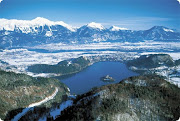
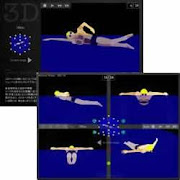
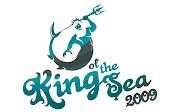



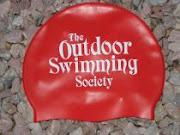




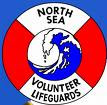
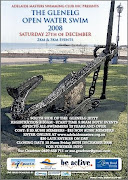





2 comments:
Every open water swimmer should read this piece about Cyrise's experience.
This is one of the most gripping and frightening recounts of an open water swim I have read.
It is full of incredibly valuable information athletes need to have tucked away for emergency reference.
Another great service offered by Steve Munatones - thank you.
very helpful caveat... cyrise related the scary experience quite successfully
and thanks steve
Post a Comment